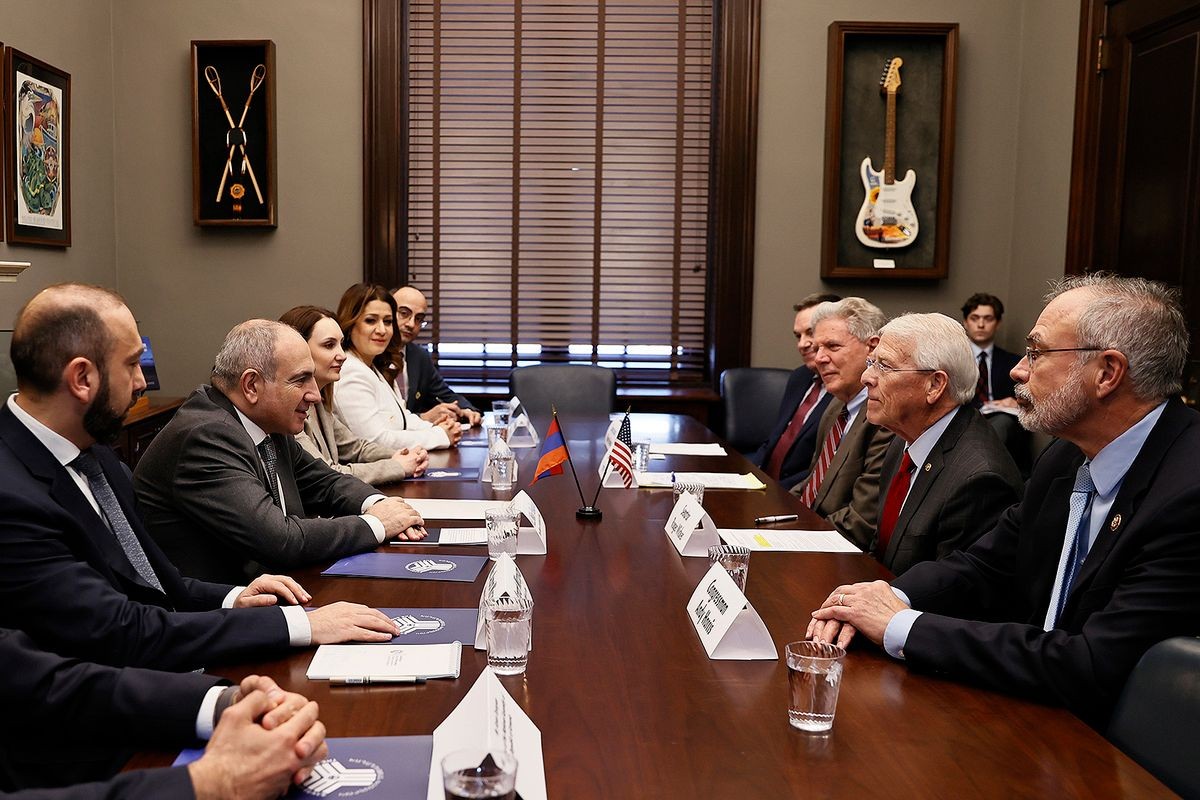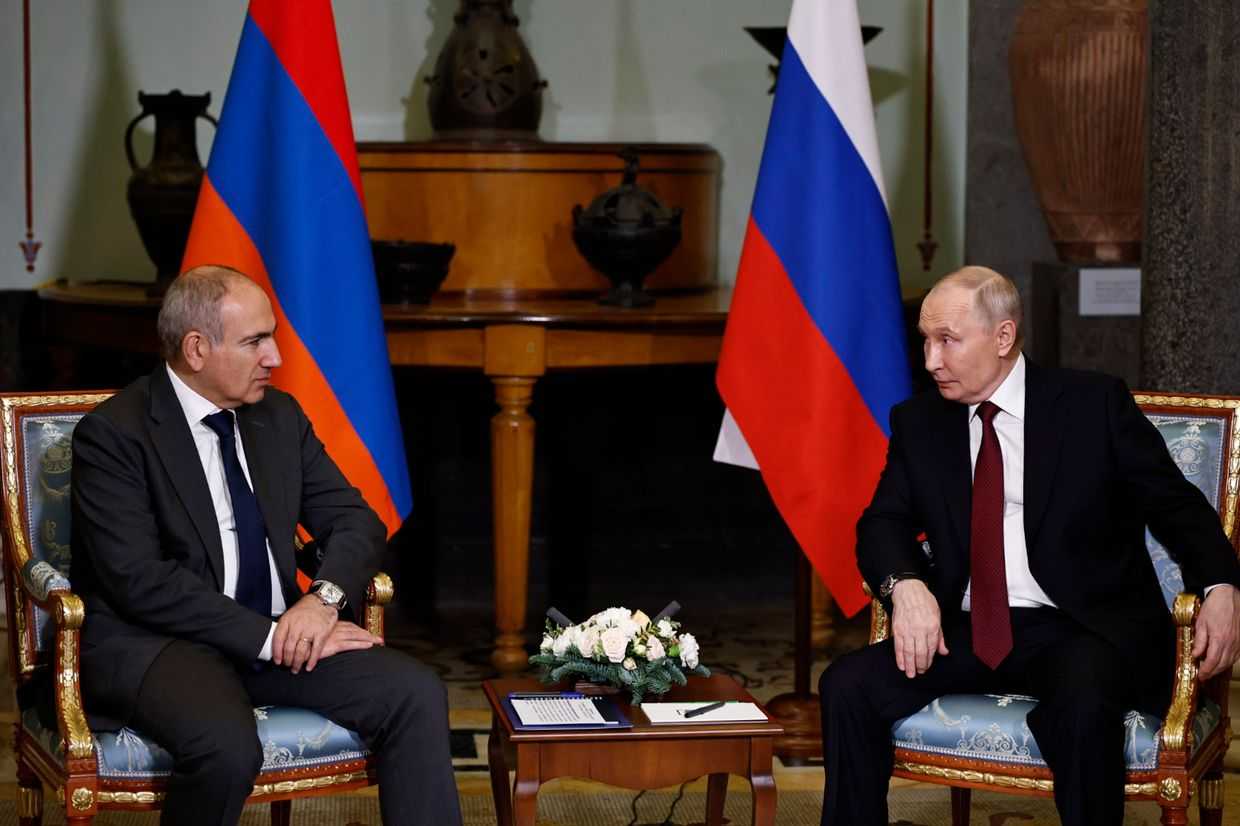
Armenian Prime Minister Nikol Pashinyan is concluding a week-long visit to the US, marking his first trip there since President Donald Trump assumed office.
Pashinyan departed for the US on Monday.
On Thursday, he met with Vice President JD Vance, with whom he discussed Armenian–US relations and updates on the South Caucasus.
Previously, on Tuesday, Pashinyan delivered a speech at the Atlantic Council, a US think-tank, discussing the peace process with Azerbaijan and the role the US could play in the process. He additionally said that the peace process required ‘persistent work, to be creative, to be active, not giving up, and continuously work on creating what you need’.
Pashinyan still claimed, however, that peace was ‘within reach’, and that ‘perhaps additional, or real, efforts’ by the Trump administration would have an effect on the talks.

Nerses Kopalyan, an associate professor of political science at the University of Nevada, told OC Media that Pashinyan assumed that direct pressure from the White House can ‘secure peace in the region […] in the same way direct pressure led to the solution of the hostage crisis in the Middle East and direct pressure is their approach on Ukraine’.
Kopalyan said that he believed Pashinyan thinks that Trump’s foreign policy agenda ‘seeks to proceed with a peace mandate’, and that ‘including the South Caucasus as part of this framework is the additional effort’.
Asked what Pashinyan’s government hoped to achieve in its relations with the Trump administration, Kopalyan said that they were ‘seeking to establish deeper relations’ with Trump, while ‘maintaining continuity and further strengthening the existing and rather strong institutional relations’ that it has developed over the last three years.
‘The objective is to use the momentum of established contacts and relationships that exist with the Trump team to enhance US–Armenia relations while marginalising the influence or attempted influence of Azerbaijan’, he said.
‘A strategic visit’
On Wednesday, Pashinyan took part in the International Religious Freedom Summit, where he delivered a brief speech on the state of religious affairs in Armenia.
He noted that Armenia joined the ‘US-inspired International Alliance for Religious Freedom and Belief in February 2020, during the first administration of President Trump.’
Kopalyan said that the conference was ‘extremely important for Trump world and all the senators, members of congress, and organisations that are highly influential with the White House.’
‘Thus, this is a strategic visit by the prime minister to cultivate strong relations with the dominant and most influential faction in MAGA world’, Kopalyan said.
Kopalyan added that Pashinyan’s tour in Washington was ‘designed to also cultivate engagement with the DC think-tank circuit, with those that influence policy, and those who are being recruited to be supporters or advocates of Armenia–US strategic relations’.
Aside from the conference, Pashinyan visited the American Heritage Foundation for Strategic Studies. He also met with Daniel Twining, the President of the International Republican Institute, and delivered a lecture at Georgetown University.
Pashinyan has also met with members of the Senate and Congress, discussing prospects for developing the partnership between their two countries and the ongoing peace talks with Azerbaijan.
According to Pashinyan’s administration, Republican Senator Roger Wicker and the congresspeople who met with Pashinyan ‘noted the need for an active dialogue with the new US administration aimed continuously advancing the bilateral agenda.’
Pashinyan’s visit to the US came less than a month after Armenia and the US signed a Strategic Partnership Charter with the outgoing US Administration, which stressed a mutual desire to strengthen relations across the diplomatic, economic, energy, high-tech, educational, scientific, cultural, legal, defence, and security fields.
On Thursday, Foreign Minister Ararat Mirzoyan wrote on X that Washington and Yerevan ‘continue efforts and important conversation to make Armenia–US cooperation great in economy, trade, security, and more’.











